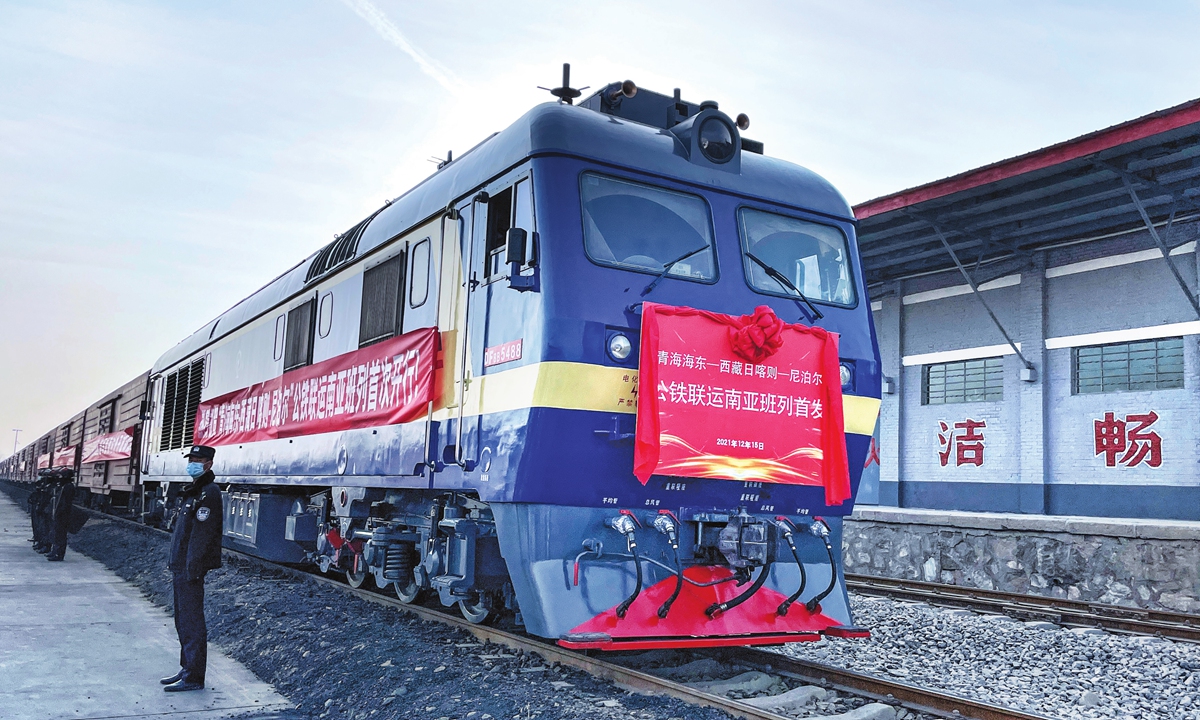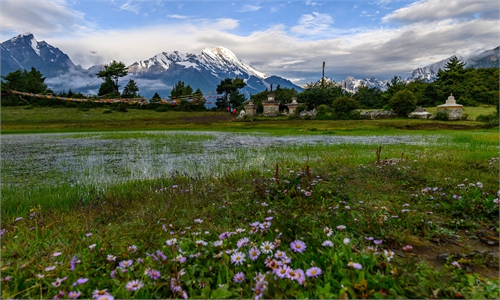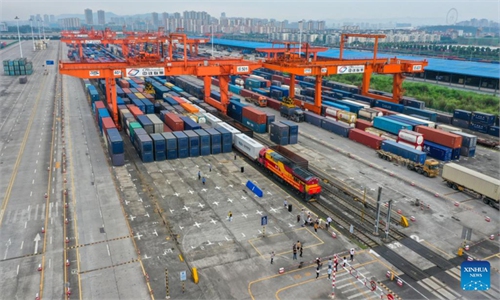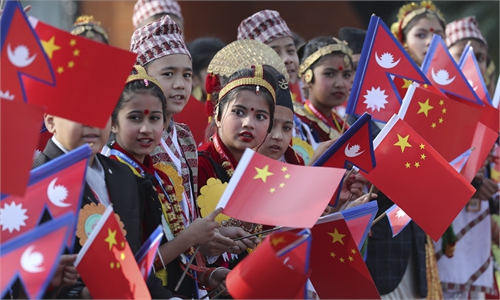IN-DEPTH / DIPLOMATIC CHANNEL
BRI contributes to the devt of Nepal

A train departs from Haidong in Qinghai Province on December 15, 2021 for Xigaze in China's Xizang Autonomous Region. Commodities onboard will have to be moved onto trucks on the China-Nepal border for further delivery to Nepal. Photo:cnsphoto
Since Nepal joined the China proposed Belt and Road Initiative (BRI) in 2017, the two countries have cooperated on a widely based on mutual trust and mutual benefits, which also benefits the development of South Asia.The BRI is "the foundation for global development and the elimination of poverty," said a recent article published by Kathmandu Tribune, an online English daily in Nepal.
"The old formulas of geopolitical games lead eventually to [a] no man's land. Instead, nations working together for the common aims of peace and development must become a new chapter in mankind's history. This is what the BRI provides: A whole new direction for cooperation between East and West," said the article.
In an interview with the Global Times, Nepali Ambassador to China Bishnu Pukar Shrestha pointed out that Nepal is willing to cooperate with China and most Nepalese people are in favor of China and China's development.
On August 10, China's State Councilor and Foreign Minister Wang Yi held talks with the visiting Nepali Foreign Minister Narayan Khadka in Qingdao, Shandong Province. The two sides announced that China and Nepal will negotiate and conclude an implementation plan for BRI cooperation, and will convene a meeting of the Joint Commission on Economy and Trade later this year.
According to the ambassador, they are working on finalizing the implementation plan for BRI cooperation which will pave the way for further enhanced cooperation such as a selection of projects and modality of financing.
In a previous interview with the Global Times, Chinese Ambassador to Nepal Hou Yanqi said that Nepal should become a "demonstration garden" for friendly cooperation among countries, not a "fighting ring" for geopolitical battles.
The two countries have carried out fruitful cooperation in infrastructure construction covering roads, airports, electric power generation, and water conservancy.
In the August meeting, the two sides also said they will speed up the Kathmandu Ring Road Improvement Project (Phase II) and advance electric power interconnectivity projects. The two sides will also strengthen the Electric Power Cooperation Plan and build the Trans-Himalayan Multi-Dimensional Connectivity Network.
According to Shrestha, Nepal is in the preparatory phase of building the second ring road in its capital city for which a Chinese contractor has been assigned to accomplish the task.
"We are about to start this project. The Chinese government has already informed us of its readiness and hope it will start any time soon. This project will contribute to better managing of the socio-economic wellbeing in Kathmandu," he said.
"We don't believe that these projects, which have huge potential to improve and contribute to the socio-economic wellbeing of Nepali people, will do any damage or harm to the interests of other countries," he stressed.



